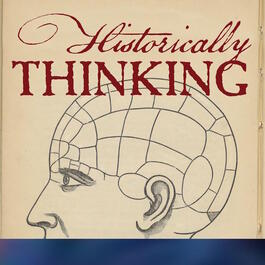
Stephen Aron and Barry Strauss on History, Engaging a Wider Public, and Intellectual Humility
This week’s episode features not one but two conversations—with Aron and Strauss—which, while it may sound like a jazz-age songwriting duo, is in fact a pairing of two distinguished historians: Stephen Aron and Barry Strauss. They join our ongoing series of interviews exploring historians’ early love of the past and the essential role of intellectual humility in historical thinking. First up is Stephen Aron, Professor Emeritus of History at UCLA and President and CEO of the Autry Museum of the American West in Los Angeles. The Autry is one of the nation’s foremost museums dedicated to the art, history, and cultures of the American West. It weaves together scholarship, public exhibitions, and community engagement to tell stories that cross boundaries—geographic, temporal, and cultural. Aron is a pioneering historian of frontiers, borderlands, and Western American history. In Episode 289, we spoke about all three—while also discussing his long effort to bridge the gap between academic and public history. As both a professor and a museum leader, Aron has spent decades bringing historical thinking into the public square. My second guest this week is Barry Strauss, the Bryce and Edith M. Bowmar Professor in Humanistic Studies at Cornell University. A scholar of ancient Greece and Rome, Strauss is well known for combining academic rigor with public engagement, writing widely read books on classical antiquity, military history, and leadership. Strauss is no stranger to Historically Thinking—he’s appeared on the podcast several times before, in Episodes 11, 45, and 256, where we’ve discussed the death of Caesar, the intellectual achievement of Thucydides, and the war that made the Roman Empire. He is also a recipient of the 2024 Bradley Prize, awarded by the Lynde and Harry Bradley Foundation to individuals who have made outstanding contributions to American intellectual and civic life. The prize honors leaders whose work—whether in education, history, law, or public policy—strengthens the foundations of a free society.
From "Historically Thinking"


Comments
Add comment Feedback